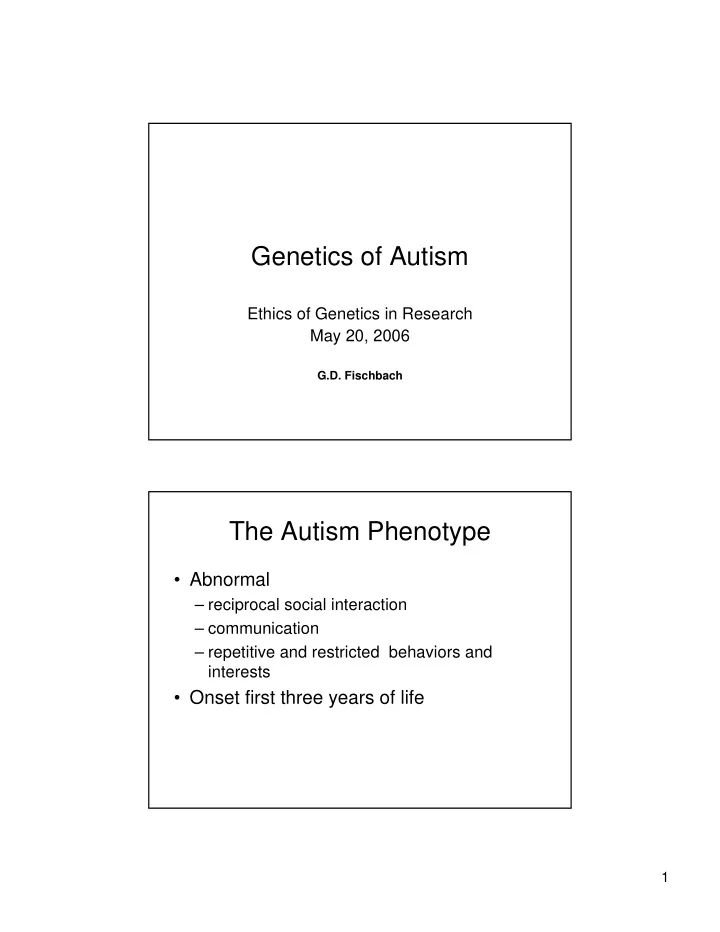

Genetics of Autism Ethics of Genetics in Research May 20, 2006 G.D. Fischbach The Autism Phenotype • Abnormal – reciprocal social interaction – communication – repetitive and restricted behaviors and interests • Onset first three years of life 1
Prevalence • Estimates range between – 1 in 1,000 – 1 in 200 • Boys/girls = 4/1 Other Associated Features • Mental retardation • Sensory impairments • Motor impairments • Epilepsy (epileptiform EEGs) • Macrocephaly • Co-morbid psychiatric diagnoses – ADHD – Anxiety – Depression – OCD 2
Related Neurogenetic Disorders • Fragile X (FRAX) • Joubert Syndrome • Tuberous Sclerosis (TSC) • Williams Syndrome • Rett • Cowden’s Syndrome • Neurofibromatosis • Phenylketonuria • Hypomelanosis • Smith-Lemli-Opitz Syndrome • Moebius Syndrome • Chromosomal deletions, • Prader Willi Syndrome duplications and • Angelman’s Syndrome translocatioins Pervasive Developmental Disorders (DSM – IV) • Autistic disorder • Asperger’s syndrome • Pervasive developmental disorder not otherwise specified (PDDNOS) • Rett Syndrome • Childhood disintegrative disorder (CDD) 3
Unresolved Issues • The significance of a “spectrum” • Delay vs deviance • Effect of “core” difficulties on learning and development • Co- incident conditions Early Development • Are there early clinical signs (before compensation)? • < 12 mos. • 12 – 24 mos. • About 30% “regress” during second year 4
Neuroscience Hypotheses (Cognitive) • Lack of theory of mind • Lack of central coherence • Deficits in executive function Neuroscience Hypotheses (Cell and Molecular) Candidate Genes 5
Autism is Heritable • Gross chromosome disruptions (5%) • Autism in other heritable disorders (5%) • Of the remaining “idiopathic” cases (90%) – Siblings or dizygotic twins = 3-5% – Monozygotic twins > 60% Gene Hunting • Positional cloning – linkage analysis – Even the strongest signals are weak – Reproducibility poor – Hotspots on 17 of the 22 autosomes and on the X chromosome • 7q and 2q most frequently reported 6
Linkage variation Wassink et al (2004) 7
Recommend
More recommend